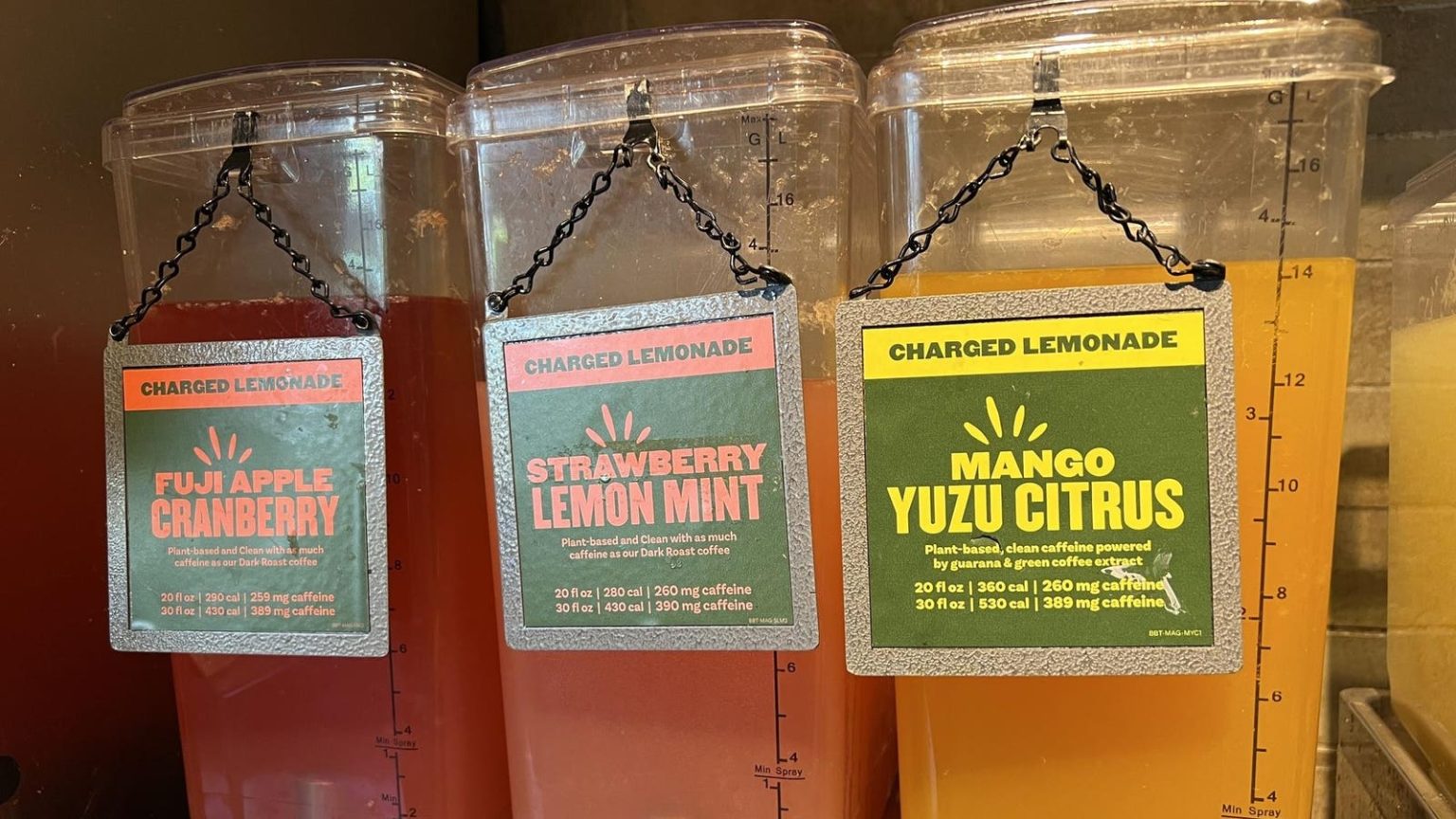Topline
A lawsuit claims a college student with a heart condition died after unknowingly drinking a large amount of caffeine in Panera’s Charged Lemonades—which contain 97.5% of the daily recommended caffeine limit in the large cup size.
Key Facts
Panera Bread describes its Charged Lemonades as the “ultimate energy drink[s]” made from “clean caffeine” sources like guarana (an Amazonian plant) and green tea extract, with as much caffeine as their dark roast coffee.
The drinks’ 20 ounce regular sizes contain between 65 and 82 grams of sugar and 260 milligrams of caffeine, while the 30 ounce large sizes have between 98 and 124 grams of sugar and 390 milligrams of caffeine.
The Charged Lemonades are a part of Panera’s Unlimited Sip Club, which gives customers unlimited refills of drinks at any size every two hours with the purchase of a monthly or yearly subscription.
The Food and Drug Administration recommends “healthy adults” shouldn’t exceed consuming more than 400 milligrams of caffeine a day.
The lemonades were the center of a lawsuit filed against Panera on Monday, which alleges a 21-year-old woman with a heart condition—who was a member of the Unlimited Sips Club—died after drinking the Charged Lemonades because the drinks contained “no advertisement as an ‘energy’ drink” and Panera instead, represented them as “clean” drinks.
“We were very saddened to learn [yesterday] morning about the tragic passing of Sarah Katz, and our hearts go out to her family,” Panera told Forbes in a statement. “At Panera, we strongly believe in transparency around our ingredients. We will work quickly to thoroughly investigate this matter.”
Key Background
Sarah Katz, a 21-year-old college student, died in September 2022 after drinking the Charged Lemonades at Panera. She experienced cardiac arrest while in the restaurant and suffered another after being transported to the hospital, according to the lawsuit filed by her parents against Panera, seeking damages. At the age of five, Katz was diagnosed with long QT syndrome (LQTS), a heart condition that causes potentially life-threatening fast and irregular heartbeats. Because of her condition, Katz took medication and limited her caffeine intake by avoiding energy drinks, though she could still have reasonable amounts of caffeine. However, she still drank electrolyte drinks like Gatorade and regular lemonade, which Katz mistook the Charged Lemonades for, the lawsuit claims. The suit also alleges that because the drinks are mixed in-store by employees, their “caffeine content is not controlled and, in turn, has an innate and dangerous potential to vary.” Katz drank out of the large cup, but because she was a member of the Unlimited Sips Club, the exact amount of Charged Lemonade she consumed is unknown, Elizabeth Crawford, the attorney representing Katz’s parents, told CNN.
Tangent
It’s widely documented that high levels of caffeine intake can lead to heart problems, like irregular heartbeat and heart palpitations. After a patient was admitted for an abnormal heartbeat and it was discovered he regularly drank two energy drinks containing 320 milligrams of caffeine each a day, it was found the high levels of caffeine in the energy drinks may have contributed to his heart problems, according to a 2016 study published in Science Daily. Caffeinated energy drinks alter the heart’s electrical activity and raise brachial and central blood pressure, according to a 2021 study published in the Journal of the American Heart Association. Participants in a 2019 study who were heavy coffee drinkers had 22% higher odds of developing cardiovascular disease compared to those who only drank one or two cups a day.
Crucial Quote
“If you notice that you’re having side effects or you’re having palpitations or crash two to three hours after you take an energy drink and you feel like you need another one, that may be a sign that you actually are consuming too much,” Ricardo Colberg, a sports medicine physician for the American Sports Medicine Institute and Andrew’s Sports Medicine, told Forbes. “If you [get] too much stimulation to increase your heart rate, you may develop what we call either arrhythmia, which is where the heart gets out of rhythm, or tachycardia, which is where the heart’s beat exceeds the body’s capacity.”
Surprising Fact
The drinks’ popularity gained traction on TikTok, with some users dubbing it “crack in a cup,” and the hashtag #chargedlemonade accumulating over 15.5 million views and hundreds of videos of users documenting their experiences with the drinks.
Read the full article here





